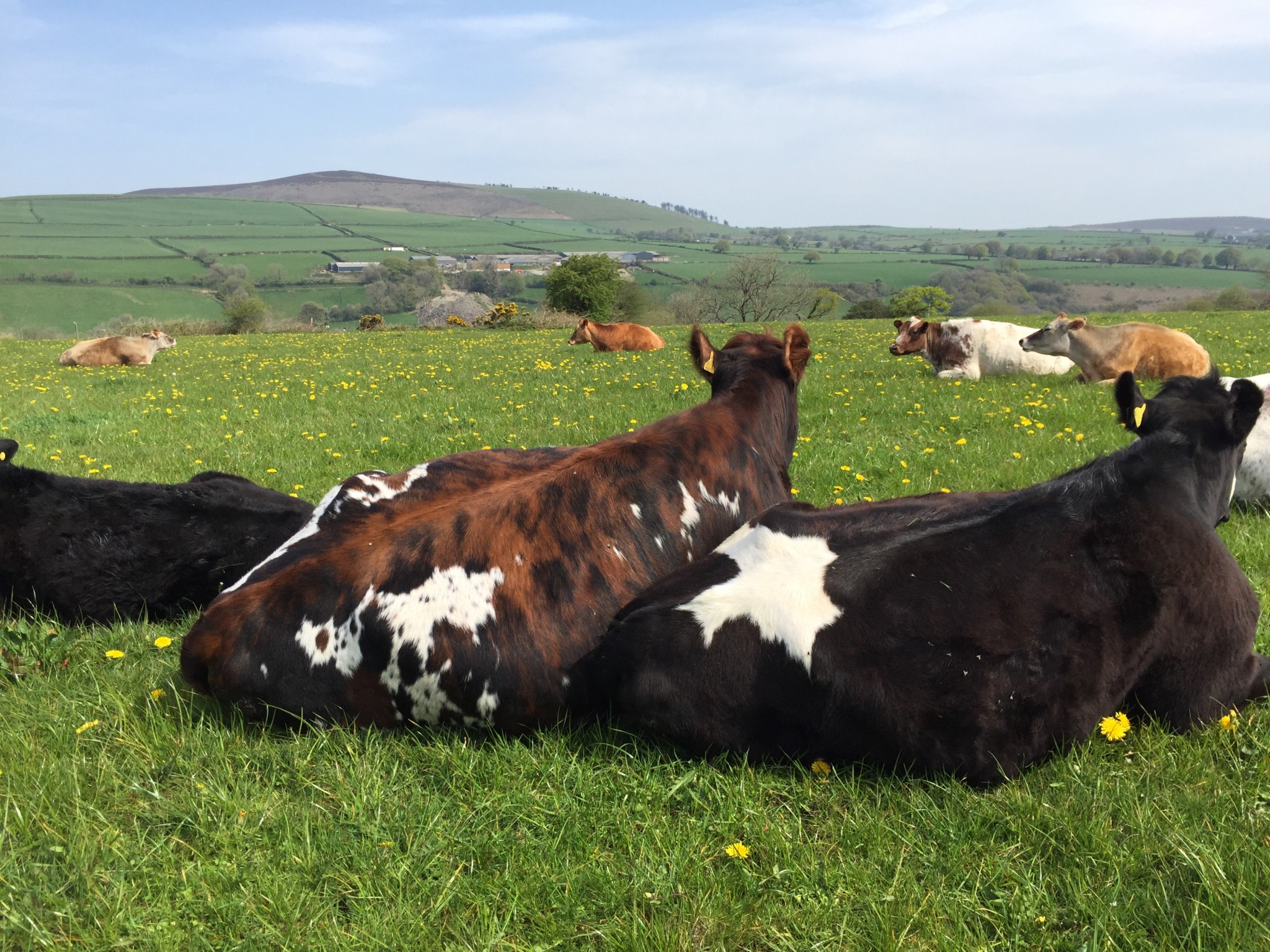Alex Heffron is looking back and moving forward in his latest update from Mountain Hall Farm
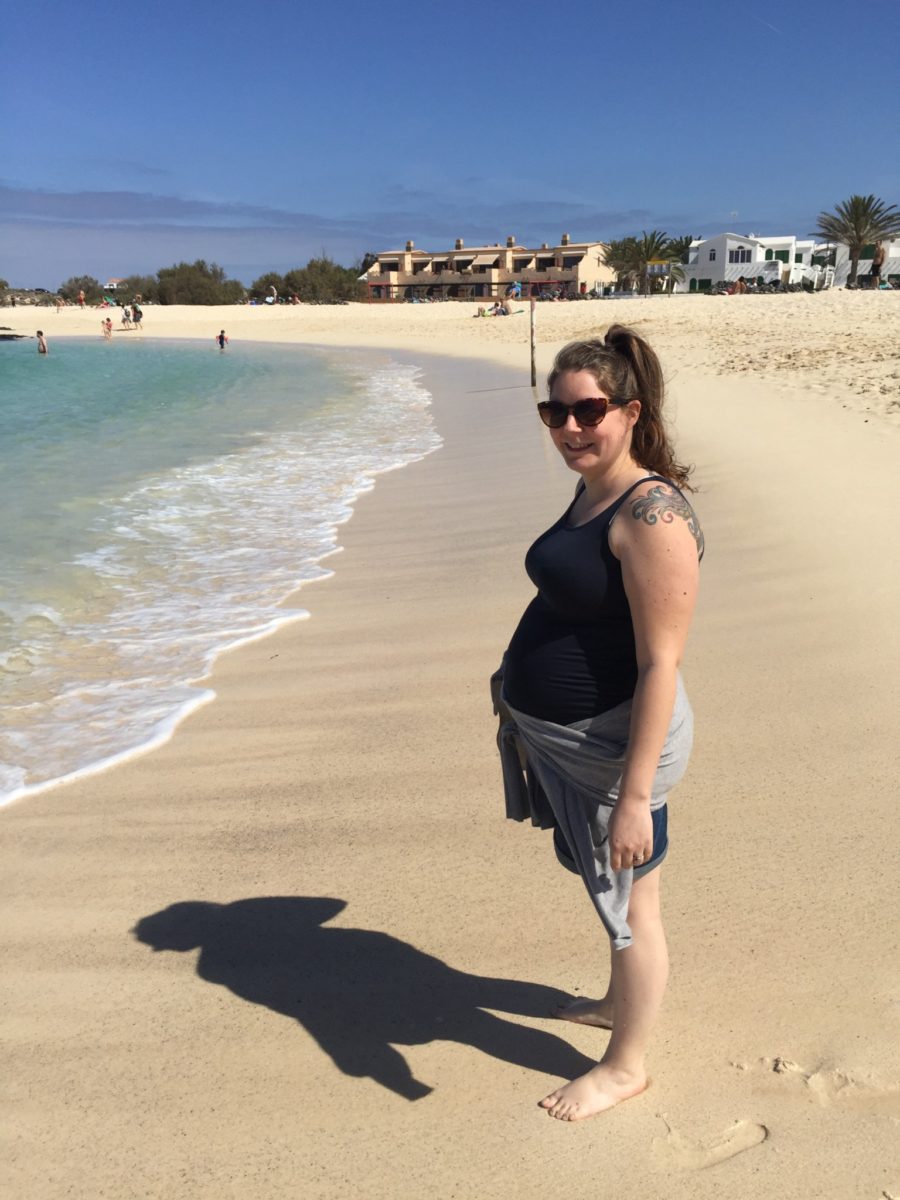
In less than 8 weeks we should have our first child, so my gaze has now turned towards the future with a greater sense of urgency and precision than before. Expecting a child sharpens your focus. As you’ll have noticed from my recent posts my attention had been focused on what was directly in front me, but since we dried the cows off in December, it’s given me the time and space needed to recuperate, reflect and re-orientate.
It’s tempting in our culture of busyness and doing to think the answer to every problem is to work harder and longer. A recent piece I read entitled, ‘Having a farm and a life,’ by Dave Pratt, highlights why this isn’t so. He says, “If hard physical work were the solution to our problems, our problems would be fewer and smaller.” Hard work is bread and butter for farmers – but ploughing ahead in the wrong direction just gets us further into trouble.
He goes on to say, “Working harder is not the answer, in fact, it is part of the problem. We’ve become so busy working inthe business, that we don’t have the time or energy to work onthe business.”
Around the time of the new year I hit a low point energy and mood-wise. I felt pretty burnt-out, and couldn’t throw off a heavy cold. At the time, I considered whether I wanted to continue farming. What was I doing it all for, I asked myself. Now that my energy is back I’m able to see the last few months of 2018 with a better perspective, and realise that I do enjoy doing what I do, but I’ve also learned that balance must be created. If I hadn’t made the decision to stop milking mid-December then I wouldn’t have had the space to recover and regain perspective.
George Henderson, in his excellent ‘The Farmer’s Progress’, states that, “The secret of work is well-arranged time and the saving of unnecessary effort.” This a man that built a farm from scratch, from the 20s through WW2.
I realise now that at the end of last year I was striving hard but ineffectively – working within a plan that was destined to fail. The last few months of 2018 were the hardest I’ve ever worked, and yet from a business perspective, I have little to show for it, other than a few (important) lessons. That all stems from being too busy to think, reflect and organise. The determination and doggedness that you need to start any small business, no less farming, can also hinder you if you’re not careful. By pressing pause on milking and taking my focus away from the everyday mundane chores of the farm I’ve been able to have a serious rethink about what it is we do, and what we’re aiming to achieve.
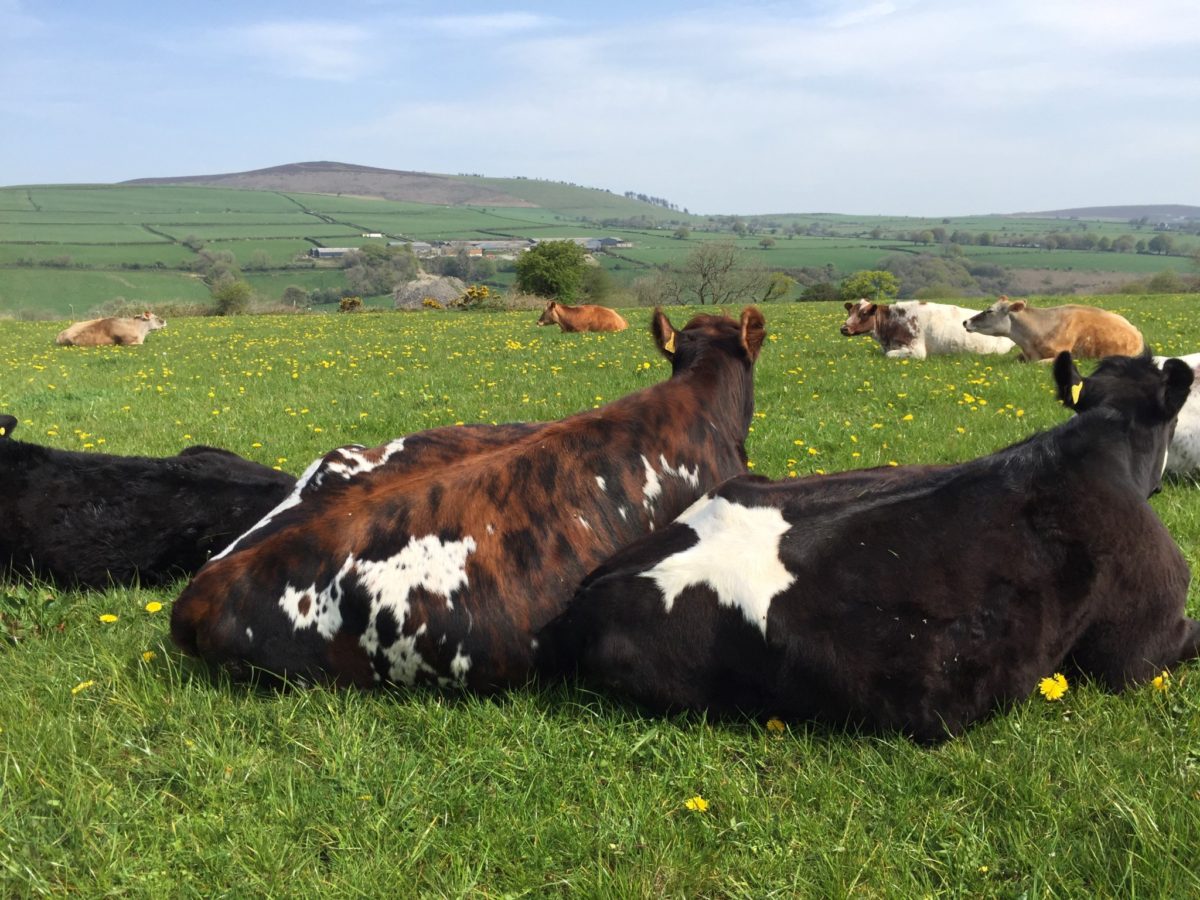
Due to being too busy doing, we were encumbered with the non-essential and were essentially wasting time — easy to see now, harder to see at the time. Losing Sam’s hours on the farm meant I was overwhelmed by my workload, combined with Sam having 6 weeks where she could rarely leave bed (due to a difficult first trimester), and it was all I could manage to sort the farm, feed ourselves and just about keep the house passably clean.
By being too busy, I’d forgotten what the point of it all was and what we’d initially set out to achieve. We were lost. You only get lost when you lose track of where you are and where you’re going, and forget to study the map. Indeed the map had got left behind. By stopping milking we decided to stop wandering deeper into the forest, and chose instead to set up camp until we had the energy to refocus on where we were going.
Without milking it meant that essential farm work could be done within 2 hours each day, freeing up needed time. At first that time was just spent recovering. I can remember days in early January when doing an hour of bedding and feeding would exhaust me. It was around that time I realised just how burnt out I was. Thankfully, and crucially, the farm was no longer fully dependent on my wife and I.
In my despair, I thought I was going to feel exhausted for a long, long time. After a few weeks of taking it easier, my energy had gradually started to rebuild. Full rejuvenation came when we took 12 days away to go on our first proper holiday in years. We left the wind and rain and spent nearly two weeks on the beach in Fuerteventura in the Canary Islands. We spent two weeks taking it easy, getting some much needed sunshine, lazing on the beach, reading, chatting, reflecting, re-connecting with ourselves and each other, eating simple but good food…
Even if you love what you do, you still need a break. I love chocolate, but I can’t eat it all the time! Your brain needs time to chill out, and a break from the constant decision-making of farming. My efficiency before our break was half what it is now. I’ve done more in the month I’ve been back than in the 3 months before we went. The importance of just stopping and getting away cannot be overestimated. You get 52 weeks a year — if you can’t get what you need done in the other 50 weeks, you’re unlikely to get it done in just an extra 2 weeks, so take a break instead! That’s a challenge I’m setting for myself. We’re addicted to the idea that working longer and harder is what’s needed. It’s really not. We should challenge that myth. Less but better.
The holiday was absolutely what we, and the farm, needed and I’m really glad we have worked over the last 12 months towards being able to take an extended break.
That meant helping our two friends and part-time farm workers, become confident with what might arise managing a small farm, which they managed extremely well. I hear lots of farmers say they can’t find people — and maybe we’re just lucky — but I think a big part of it is the willingness to let go, and give over some control to others. It’s taken time and training to get Ant and Jacqui to the point where they are able to do everything, but now that they are, the freedom we gain is invaluable. It makes the farm more sustainable and resilient for the long-term, and a more fun and social place to be. After all, another complaint of farming is that it can be lonely. Mountain Hall is rarely a lonely place. Really the only reason the farm is still functioning is because of Ant and Jacqui — without them I might actually have given up last year — at least on the dairying, as it would’ve broken me. Mountain Hall is indebted to them.
Once my body had recuperated, I had time to think, reflect, plan and strategise. Whilst we were on holiday loads of ideas came to mind. I realised that the farm had gone off track and needed re-orienting. We needed to simplify and get back to basics. We also needed to strip back the non-essential. as I realised we’d been doing too much, and were being too idealistic.
Farming is hard enough anyway, and we were making it even harder than it needed to be by making decisions based on naive idealism and rigid thinking – ideals that didn’t even, upon examination, really belong to us and were hindering our progress.
It’s acted as a good reminder for the importance of the Holistic Management framework. A key concept of Holistic Management is the need for constant awareness of your holistic context, and the need to test decisions in a systematic, objective-as-possible, manner. It also emphasises the importance of tracking your decisions, looking for early warning signs of failure and it encourages feedback and the re-working of ideas.
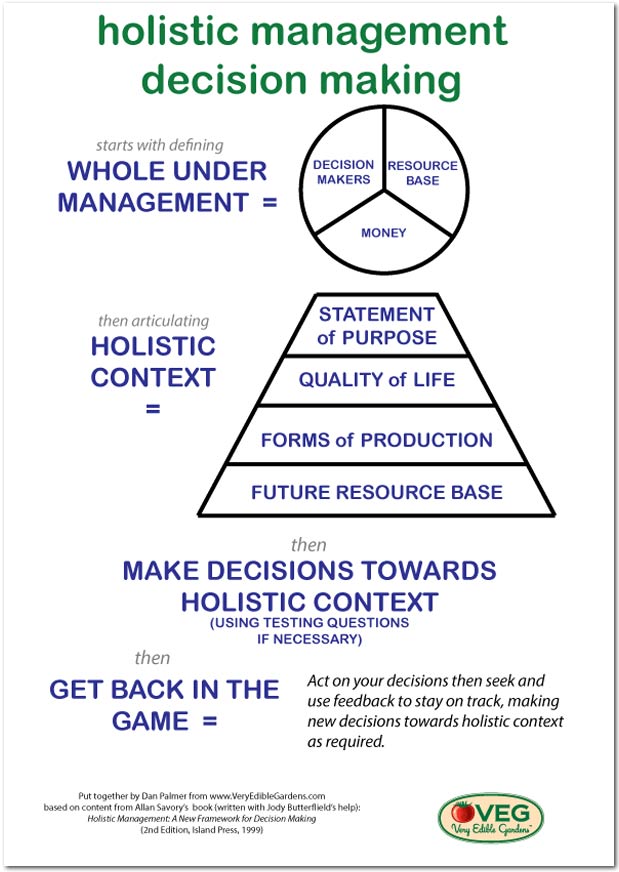
Sunk cost bias is something we should all keep in mind too. Just because you’ve spent £10,000 and a year of your life working on something, it doesn’t mean you should continue to work on it. We have to remain flexible and adaptable.
Looking forward, we have a good sense of where we’re going again. It’s more or less what we’ve been working towards, it’s just we’ve further honed our vision. Increasing efficiency will be a key goal of the next couple of years.
We’re aiming to milk 15 cows next year. We’re going to block calve in March, and dry the herd off just before my birthday in early December, giving us an essential 3 months off milking each year. Calves will stay on their mothers for 4–6 months, depending on yield and condition, and we’re going to revamp the barn to provide a calf bedroom so that we can easily separate the calves from their mothers each night from about 4-6 weeks of age, to help boost the yields we get to the tank — essential if this is going to sustain us financially.
We’re going to switch feeding lucerne as it has very little energy (Metabolisable Energy or ME) to feeding a small amount of organic dairy concentrate to help boost our yields a little more and also improve the condition of our cows. After trying zero grain dairy for 2 years we’re not yet happy with the condition of our cows, meaning they’re struggling a bit over winter. Hopefully over time we can improve the genetics of the herd, and the quality of our pasture to come back off grain, but we have to be realistic and firstly care for our cows’ welfare, and secondly our profits are just too small to keep this sustainable. An extra 2–3L per day would make all the difference to our bottom line. It’s easy to forget just how much milk the calf takes and the energy for that milk supply must come from somewhere. Combined with this we’ll be buying in some traditional British Friesians. As much as we love our Jersey cows they’re not producing enough milk in our 100% grass-fed, cow/calf system to make us a viable livelihood from farming.
And of course we’re going to build a totally new parlour! Yet again! The abreast parlour we started working on last year, will sadly be dismantled, but it was a useful step in our learning all the same. Instead we’re going to uncover and rebuild the original dairy parlour that was put in during the 70s. Remarkably the same guy that put it in then is about today and will hopefully help us rebuild it.
With a more efficient system we’ll be able to milk 15 cows in no time at all. The more efficient we are with our time, the better our hourly rate, whilst meaning we can get more done across the rest of the farm and help us achieve the aim of having a balanced work-farm-life balance. I want to be able to spend time with my wife, children and friends, and I don’t want to spend all my time milking cows. Something that is stressed in Holistic Management is that you’re working towards a Holistic Context, not a myopic goal.
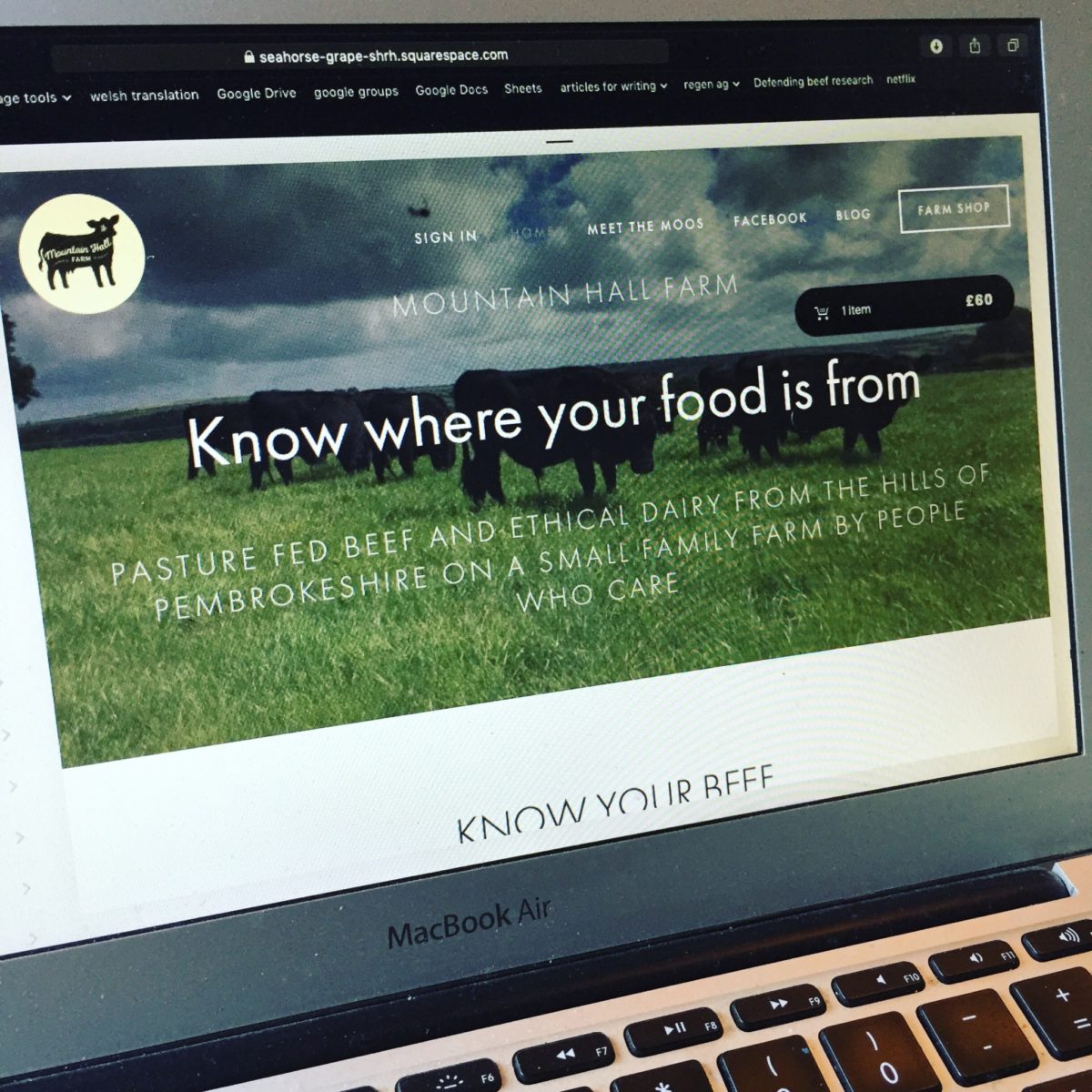
On top of improving the dairy infrastructure, we’re going to build an on-farm butchery over the next 18 months, which allow us to improve the quality of the product we offer by giving us the much needed control of the process. We also have plans to develop some value-added meat products.
So whilst we may be taking a year off milking it certainly won’t be a year off! I’m excited to have time to work on things that have been nagging at me for a long time. We can also spend more time planting trees, and generally improving fencing, water, tracks, drainage and all the other essential farm maintenence.
But saying all that, my number one aim for this year is to create a better work-life balance. I’m not going to run myself into the ground trying to achieve too much. If everything takes longer than planned, which it undoubtedly will, then I’ll just get less done on the farm this year.
Important in realising balance has been changing how I respond to people when they ask something of me. In the past I didn’t want to disappoint, after all many of us have been conditioned all of our lives to please others and do what they want of us. My reflections of late have taught me that I need to be careful of that tendency. Something Javan Bernakevitch says, is if you don’t design your life, then someone else will. I’ve recently realised the importance of setting boundaries and enforcing them. Every time I say yes to someone, I’m saying no to someone else, usually my wife or myself, and soon to be I’ll have a child dependent on me, and I don’t want to be elsewhere when my child needs me. I’ve stopped asking myself if I want to do X, but started asking myself, if I do X then I can’t do Y. Last year I said yes to too much, and in the end sacrificed my own mental and physical health.
It’s so easy to say yes — saying no is challenging. But by focussing on less, I believe we can be better at what we do and achieve more for ourselves and for others. I think in a society that seems permanently distracted, saying yes has just become another distraction that stops us from contributing to our best abilities. I’m learning that discernment is an essential skill.
Ultimately, I’ve realised that my identity isn’t completed tied up by what I do. And that what I do, isn’t just my work. My meaning in life doesn’t come solely from my work, and indeed it shouldn’t do. I’ve realised that there is more to me than my work. That whilst my work is meaningful, that my relationships with those around me are even more meaningful.
“In work, do what you enjoy. In family life, be completely present.”
Lao Tzu.



